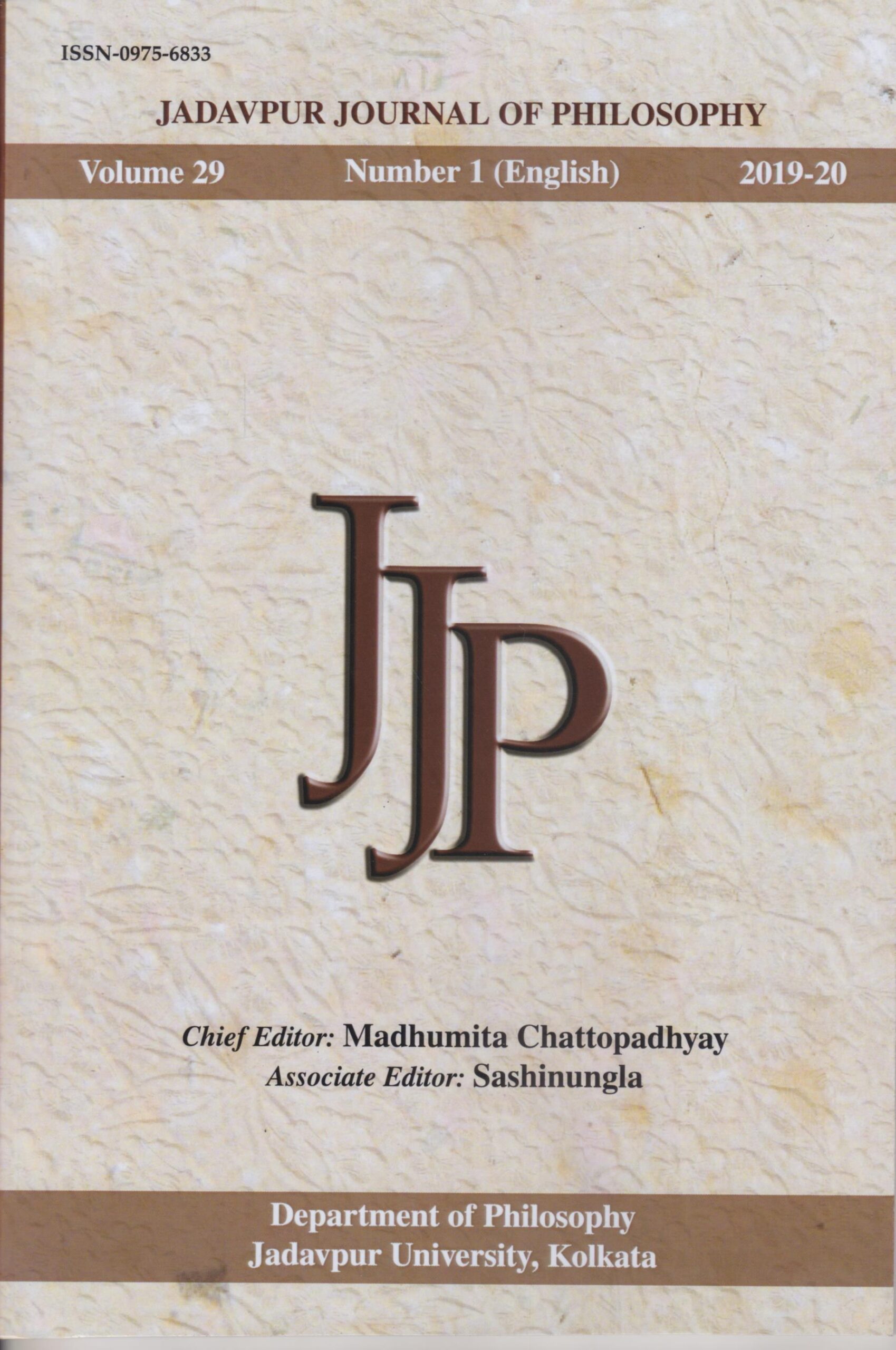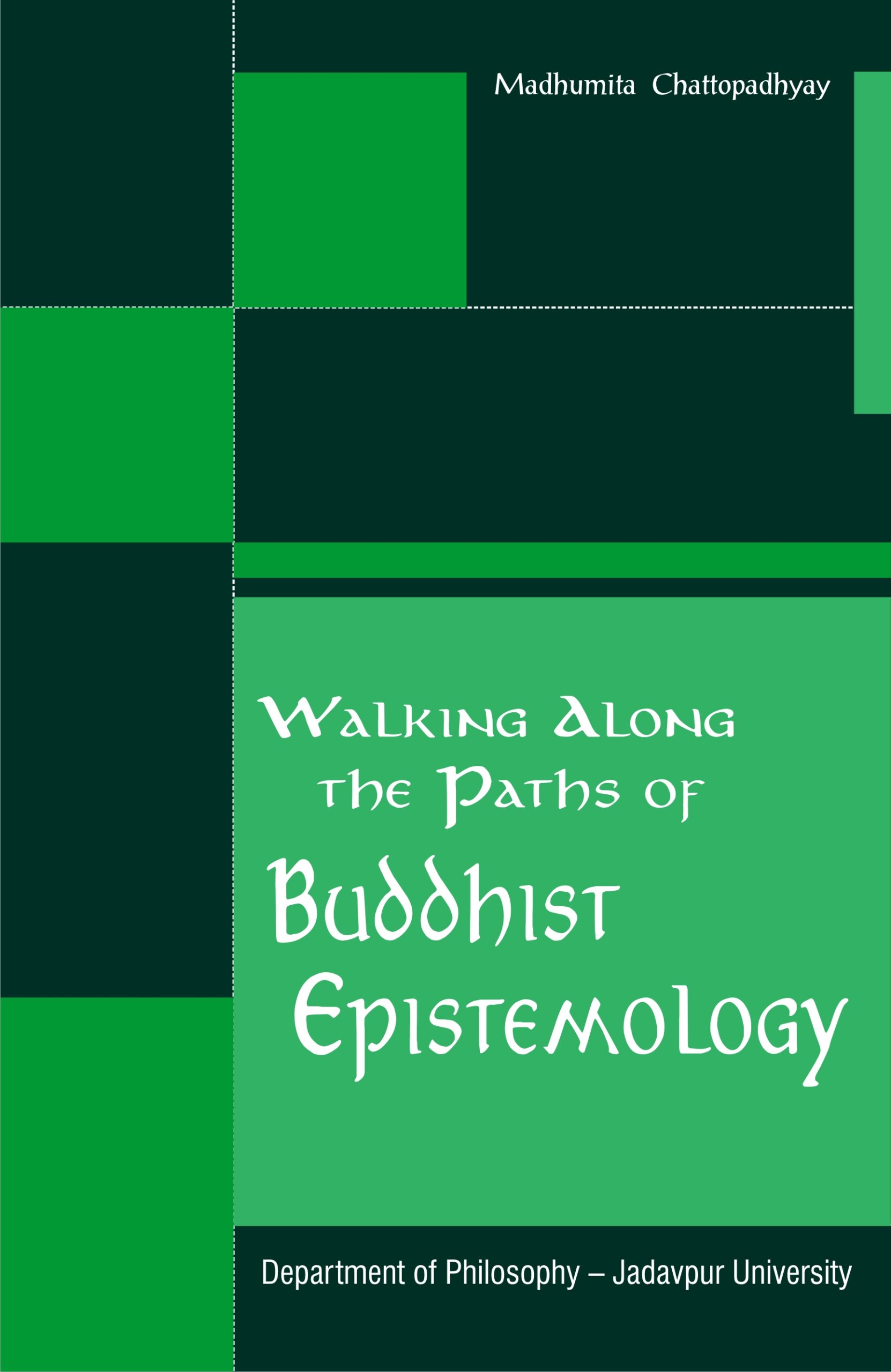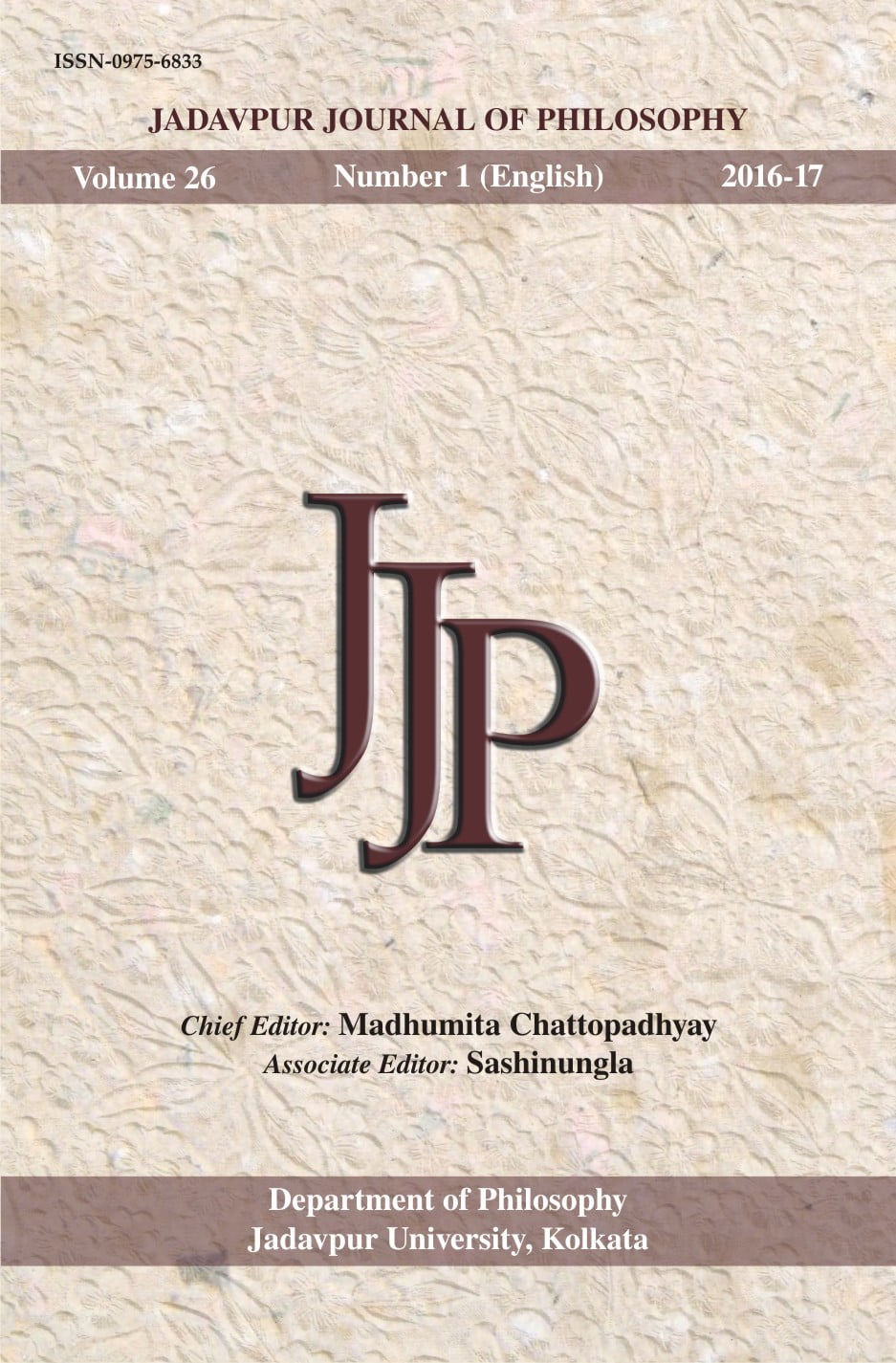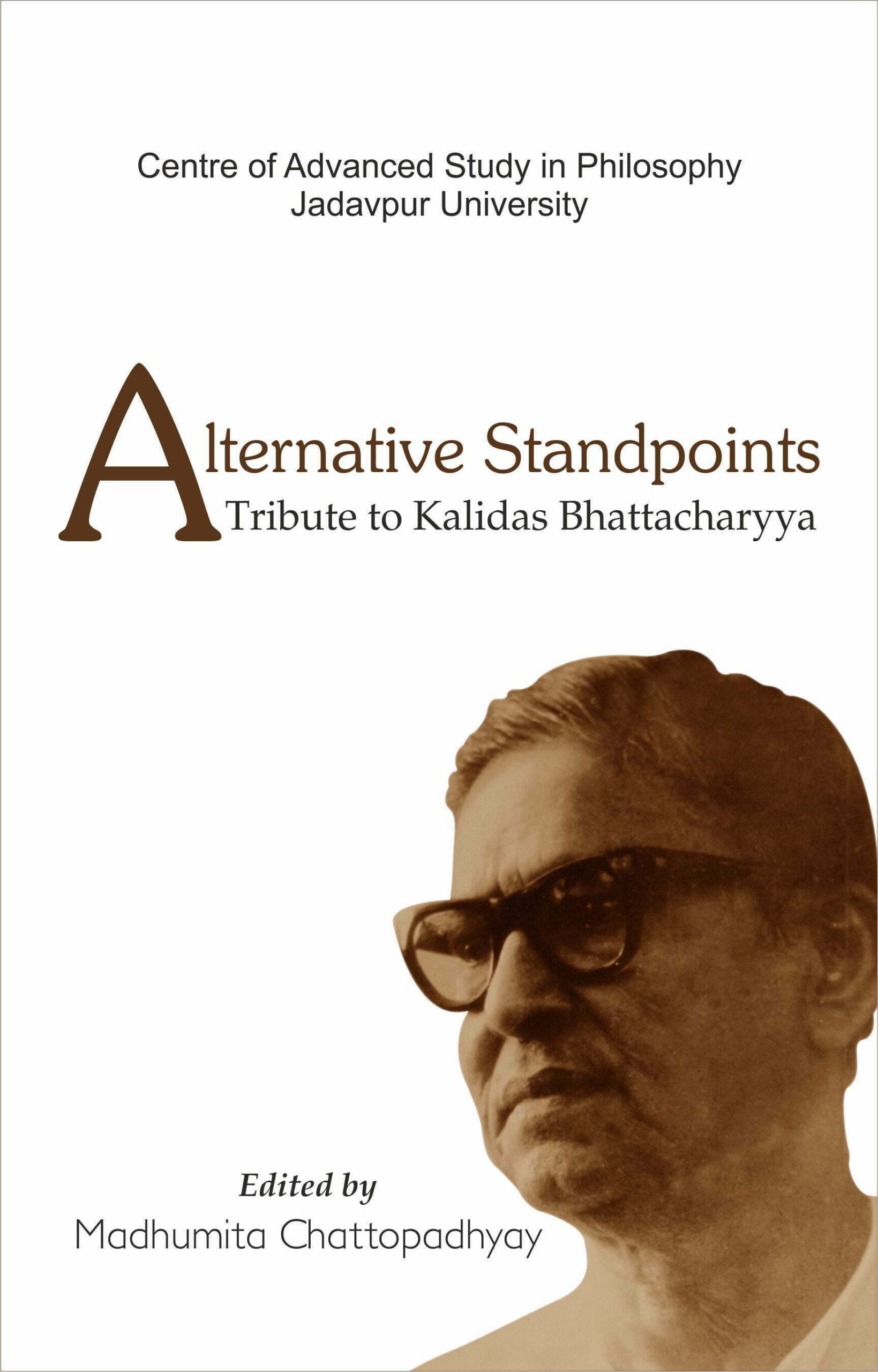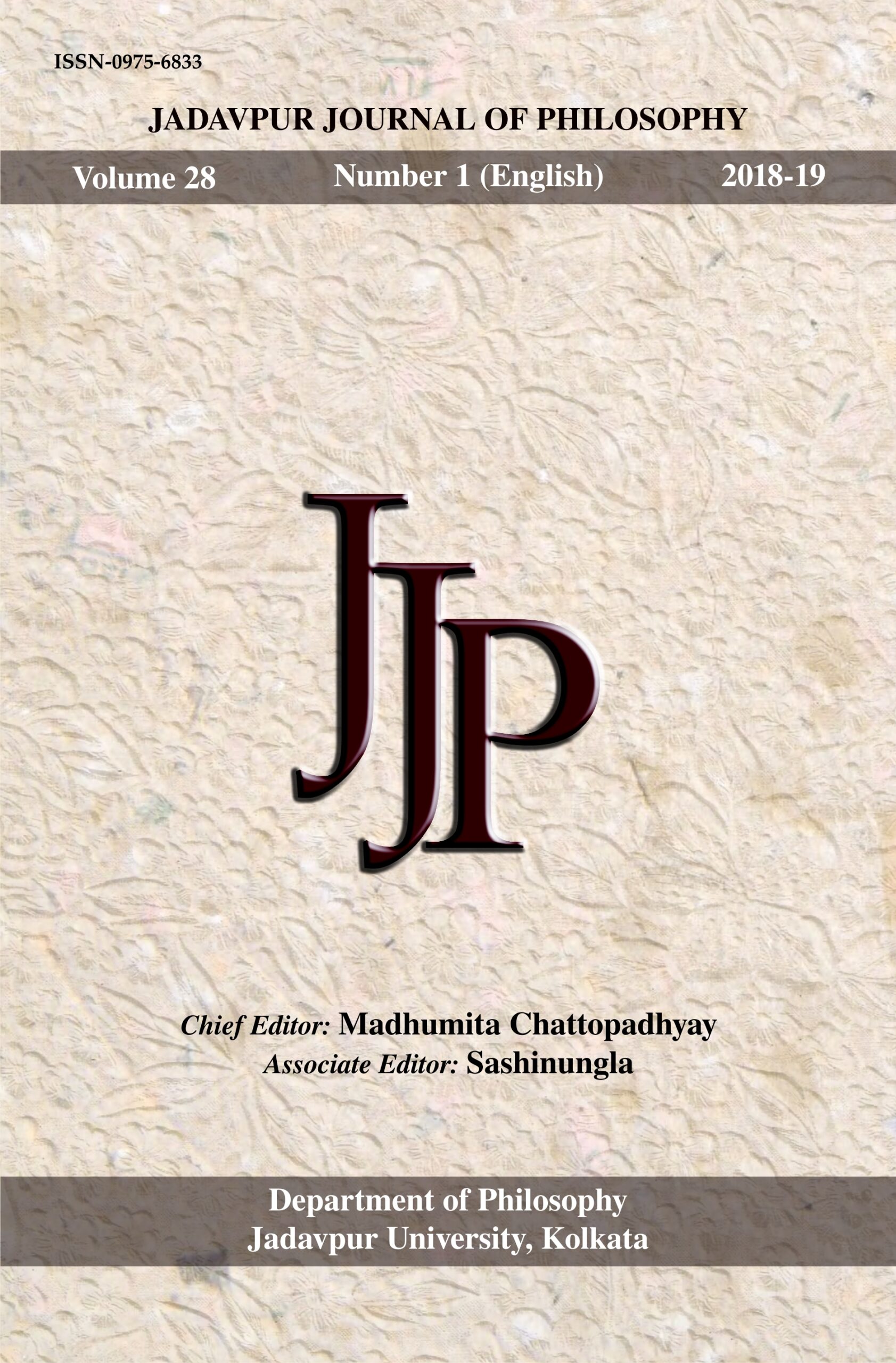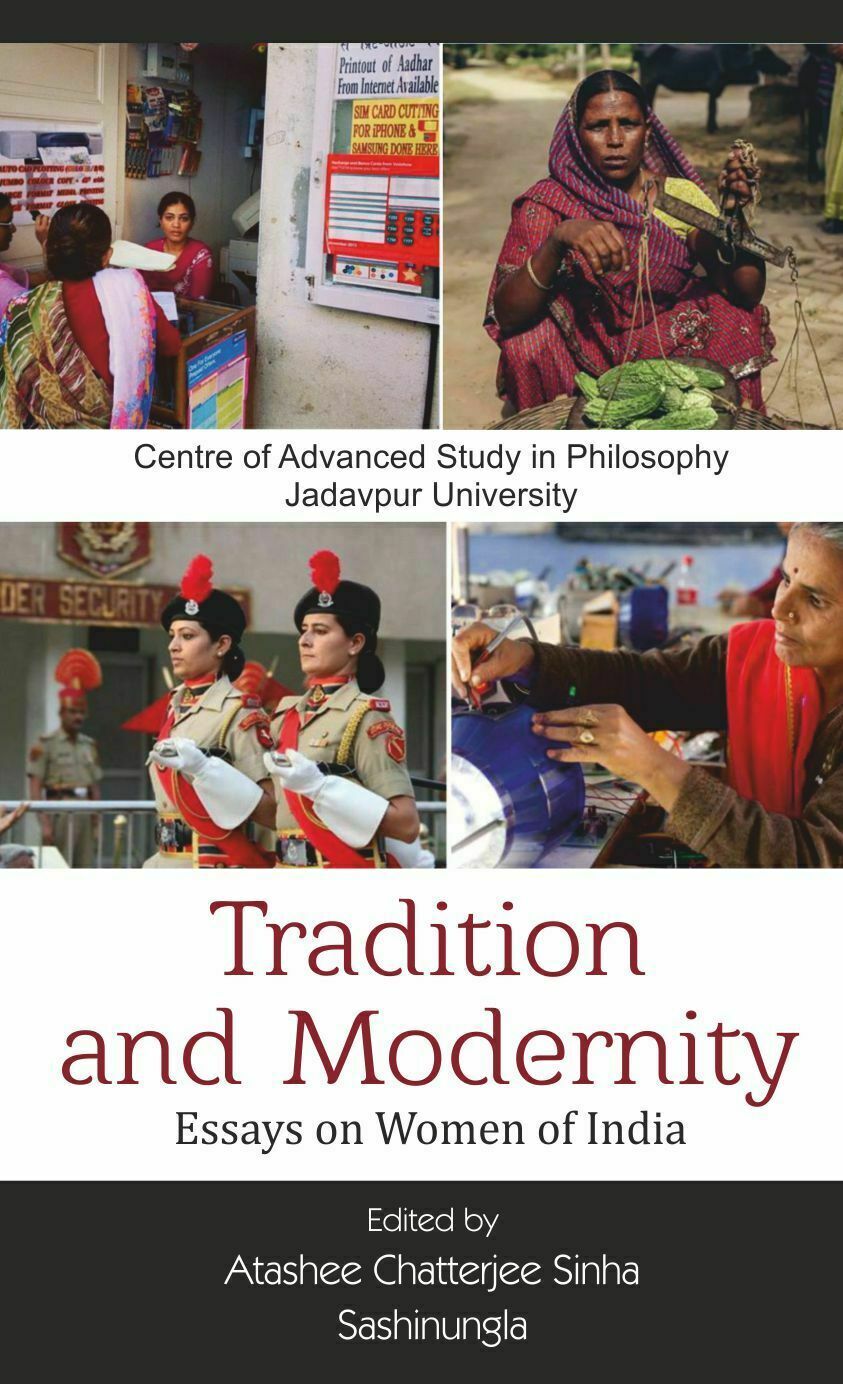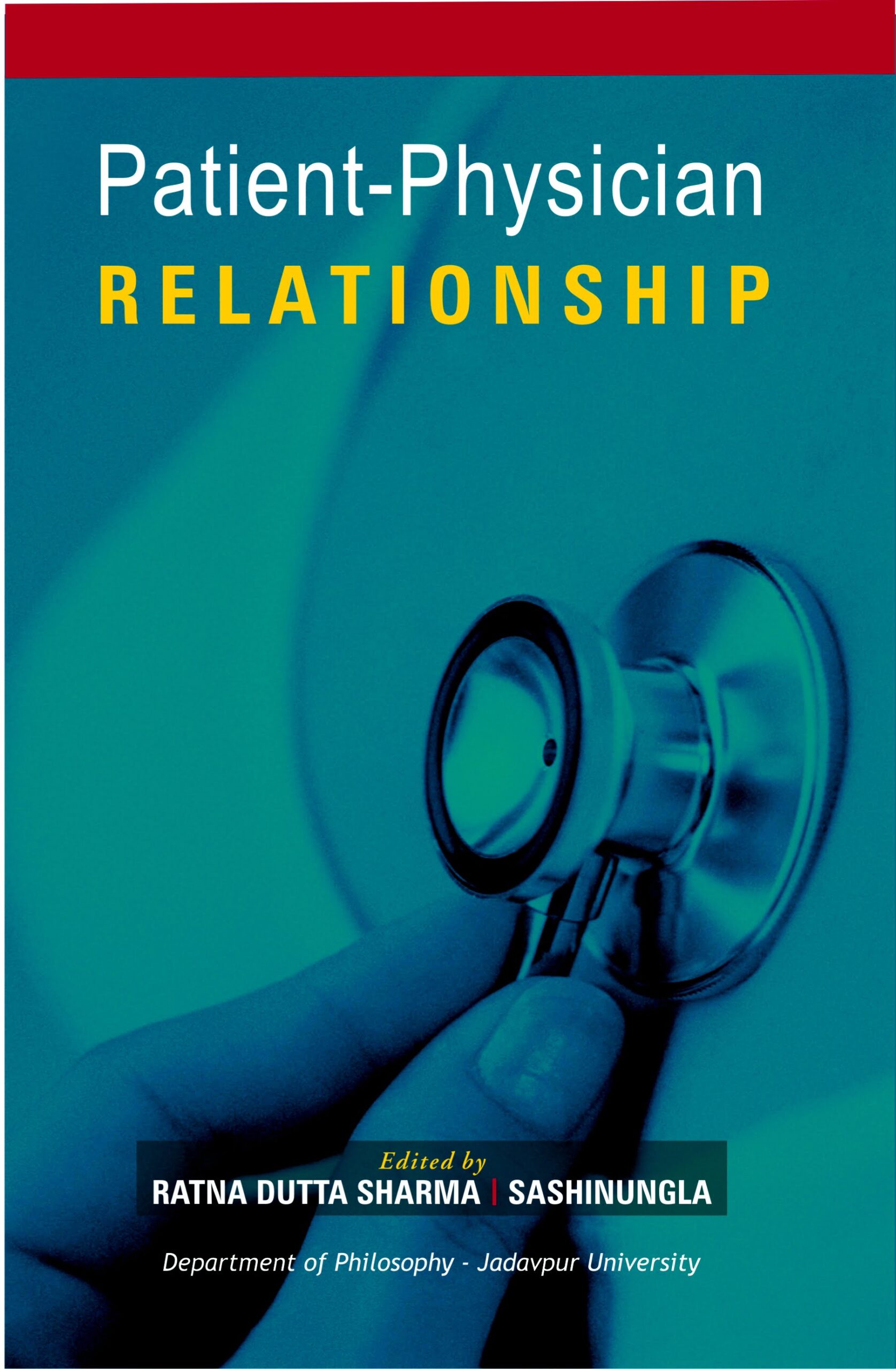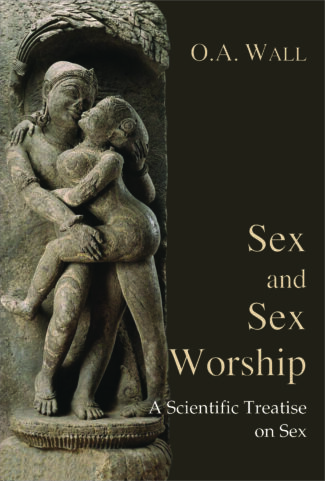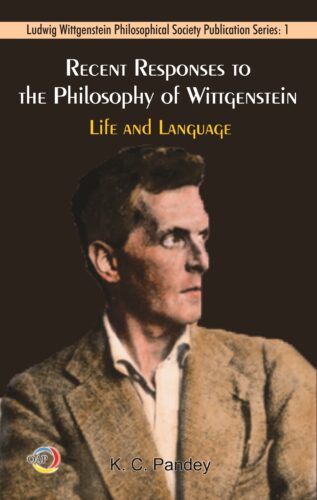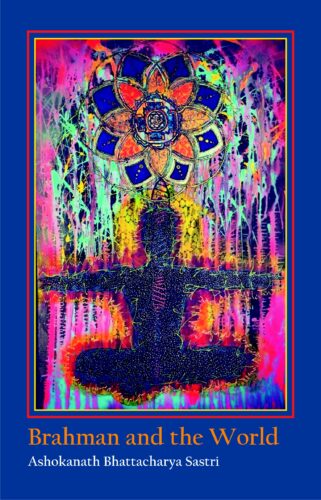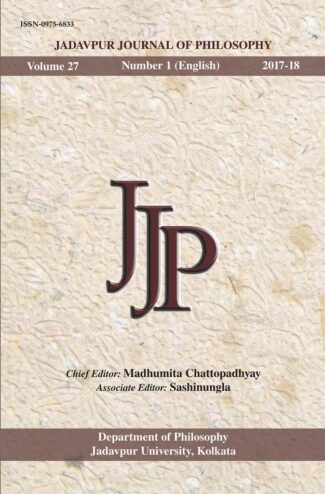

Jadavpur Journal No....
Jadavpur Journal No. 27
by: Madhumita Chattopadhyay , SashinunglaJadavpur Journal of Philosophy is a refereed, bi-issue journal, in English (No. 1) and Bengali (No. 2) published annually by the Department of Philosophy, Jadavpur University, Kolkata, India. The journal volume in Bengali is titled Darsan Biksa. The journal is devoted to the publication of original scholarly papers in any branch of philosophy. Its objective is to encourage contributions from scholars, dealing with specific philosophical problems connected with their respective fields of specialization.
₹300.00 Original price was: ₹300.00.₹270.00Current price is: ₹270.00.
ISBN: 9788100000786
Year Of Publication: 2018
Edition: 1st
Pages : 143p.
Language : English
Binding : Paperback
Publisher: Jadavpur University
Size: 23
Weight: 250
Jadavpur Journal of Philosophy is a refereed, bi-issue journal, in English (No. 1) and Bengali (No. 2) published annually by the Department of Philosophy, Jadavpur University, Kolkata, India. The journal volume in Bengali is titled Darsan Biksa. The journal is devoted to the publication of original scholarly papers in any branch of philosophy. Its objective is to encourage contributions from scholars, dealing with specific philosophical problems connected with their respective fields of specialization.
- Sale!An Introduction to Jain Philosophy by: Parveen Jain
₹1,600.00Original price was: ₹1,600.00.₹1,440.00Current price is: ₹1,440.00.It is well-known that the Jain tradition has been extremely influential in the development of Indian thought and culture. The Jain tradition teaches that there is an interdependence of perception, knowledge, and conduct unified by an axiomatic principle of non-violence in thought, speech, and action. In this way, non-violence defines the core of the Jain tradition, which has had a profound effect on other dharmic traditions originating in India. Jain Dharma is so significant that in some ways it may be incomplete to attempt to understand other Indian traditions (such as Buddhism or Hinduism) without knowing the basics of the Jain tradition, since these other traditions developed in an ongoing dialogue with the insights and wisdom of Jain respondents and visionaries.
This book enables the reader to enjoy a comprehensive journey into the intricate world of Jain thought and culture in a way that is philosophical in its compelling rationality, deeply spiritual in its revelations, yet accessible in its language. The organization of this book allows the reader to engage in an overview of the central teachings of the Jain tradition, but also to ascertain the profundity of its depths. It can be read with equal efficacy in succession from beginning to end, or pursued by individual topics of interest to the reader. Either strategy will have the same effect: a systematic understanding of what the timeless teachings of Jain thinkers have to say about the universal issues of the human condition – and how we might understand our harmonious relationship with other living entities as a powerful and effective spiritual journey. - Sale!Sex and Sex Worship by: O. A. Wall
₹1,990.00Original price was: ₹1,990.00.₹1,980.00Current price is: ₹1,980.00.Mankind, when it gave expression to its first dawning of religious thoughts, wove a fabric of myths and theories about religion, the warp of which ran through from earliest historical times to our own days as threads of the warp of philosophies and theories about sex, male, female, love, passion, lust, desire, procreation, offspring, etc. The succeeding ages and civilizations wove into its warp the woof of the individual religions, myths and fables of gods and goddesses, so that the whole fabric of beliefs became refined as mankind itself advanced.
Sex and Sex Worship is the result of a long-time, arduous study of the concept of sex and the worship of phallus in various civilizations and in the development of different religions, modern and old, over a period of many millennia. The book makes one grasp a lot of topics associated with sex and sex symbols such as nature of sex and reproduction, status of women, cosmo-gonies, sex in man and animal, sexual relationship of gods and goddesses, virgin worship, phallic festivals, among many, while making it clear that the worship of generative organs was rather a use of representations of phallus and yoni as symbols for certain religious ideas which were embodied in nature worship.
It also vividly talks about the concept of sex and sex organs in art and ethics, sculpture, art anatomy, etc. The contents in toto lead one to the myriad aspects and concerns associated with sex and phallic worship. It is a must read for a scholar and a common man alike. - Sale!Recent Responses to the Philosophy of Wittgenstein by: K. C. Pandey
₹1,800.00Original price was: ₹1,800.00.₹1,620.00Current price is: ₹1,620.00.The essays contained in this anthology explore philosophical issues which have often been raised during recent debates and discussions in Wittgensteinian epistemology, theology, logic, ethics, religion, social science, cultural studies, psychology and language. It is based on the idea that Wittgenstein’s thoughts have not only been interpreted by the academicians in philosophy, but have been used as a method in many other fields of Humanities and Social Sciences as well. Keeping in view this idea, the book gives a fresh interpretation from the perspectives of recent issues raised on life and language in the philosophy of Wittgenstein. It discusses Wittgensteinian issues through the perspectives of the Indian as well as the contemporary world.
- Sale!Brahman and the World by: Ashokanath Battacharya Sastri
₹500.00Original price was: ₹500.00.₹450.00Current price is: ₹450.00.“The Vedānta has been rightly called the Finest Fruit of Indian Thought and the Upaniṣads as the Finer Flowers. Vedānta grows out of the teachings of the Upaniṣads and passes into the various systems in the writings of Śaṅkara, Bhāskara, Rāmānuja, Madhva and Vallabha, the great founders of Advaita, Bhedābheda, Viśiṣṭādvaita, Dvaitādvaita and Śuddhādvaita, respectively. However, there is a perception among Orientalists that while the Upaniṣads favour the Monistic doctrine, Bādarāyaṇa’s Brahmasūtra fundamentally opposes it on some of the most crucial points.
The book thus delves deep into the philosophies of both Bādarāyaṇa and Śaṅkara in enunciating the essential features of Brahman and Its association with the world. It thus discusses topics such as what sort of cause Brahman is?, and what sort of material causality is to be ascribed to It? It also addresses the conflicting views on the nature of Brahman like that of Vivarttavāda and of Rāmānuja’s Saguṇa-Brahman.
This book proposes to take up the question of Universal Causation to examine thoroughly as how far it is right to regard Brahman as the Universal Cause and how far sūtrakāra himself lent his support to each of the inter-conflicting schools of Vedānta. This book should, therefore, benefit all who are devoted to the philosophic teachings of Advaita Vedānta and its preceptors.” - Sale!Vedanta Science and Technology: A Multidimensional Apporoach by: Girish Nath Jha, Bal Ram Singh, Sukalyan Sengupta,
₹3,000.00Original price was: ₹3,000.00.₹2,700.00Current price is: ₹2,700.00.Vedānta texts have been well known for their richness in fundamental scientific and technological principles with strong potential for research and development today. In fact, much of ancient India’s remarkable achievements in science and technology can be credited to Vedantic texts.
This volume – proceedings of the 22nd International Congress of Vedanta held during 27-30 December 2015 at Jawaharlal Nehru University, New Delhi – features 53 scholarly articles from a wide variety of areas of study. The 22nd Vedanta was a confluence of scholars from various disciplines and the papers in this volume bear the imprint of an intense discussion that is usually expected from a good Vedanta seminar. Though the majority of the papers are in English, a few are in Sanskrit and Hindi as well. The papers are grouped under Vedānta Studies, Vedānta and Philosophy, Vedānta and Science, Vedānta and Culture, Applied Vedānta, and Digital Access and Search of Sanskrit Texts.
This multidimensional approach extends the core scientific ideas of Vedānta to social, cultural, aesthetic and religious aspects of studies, creating a wide spectrum of intellectual discourse and trying to discover fundamental scientific and technological aspects of Vedānta studies.
Being a worthwhile addition to Vedānta studies, this volume should invoke keen interest among all those who are deeply into it, be a student, a researcher or a common reader.


